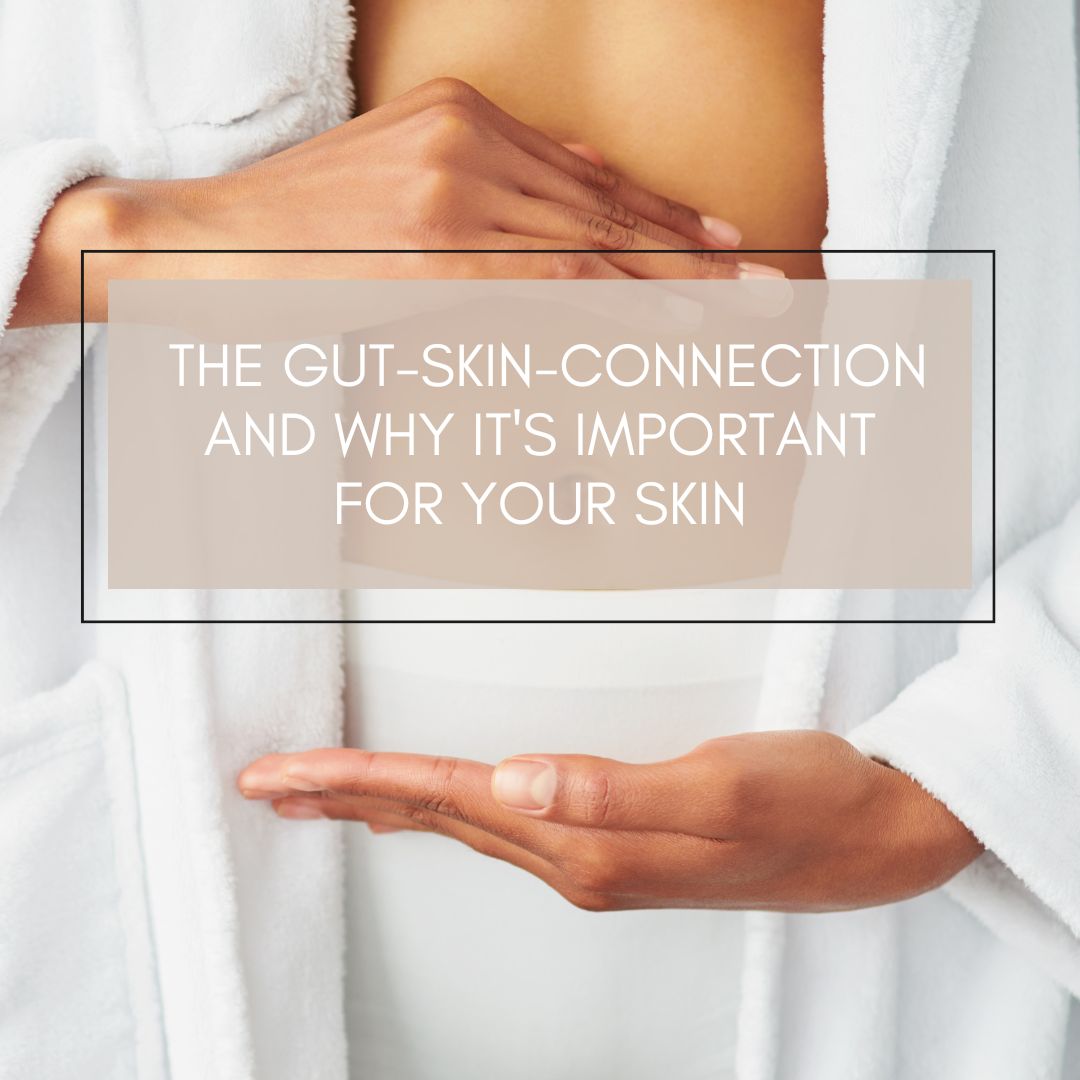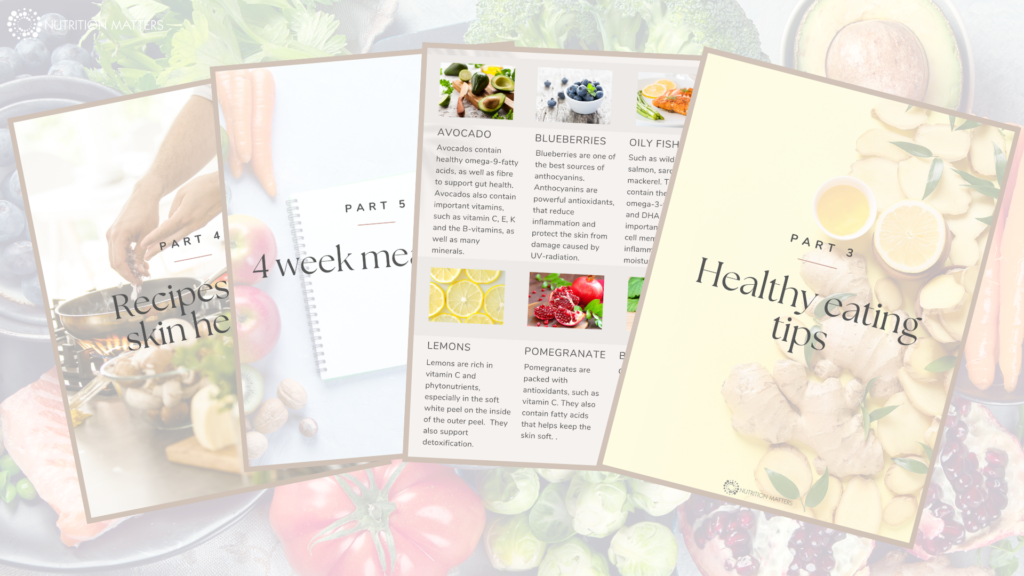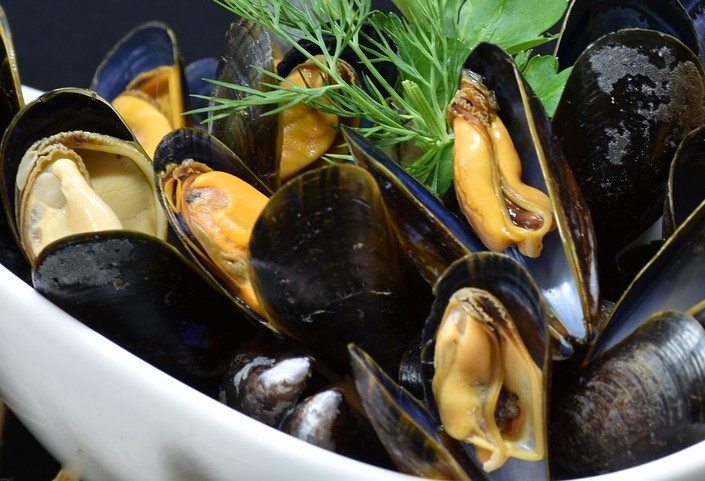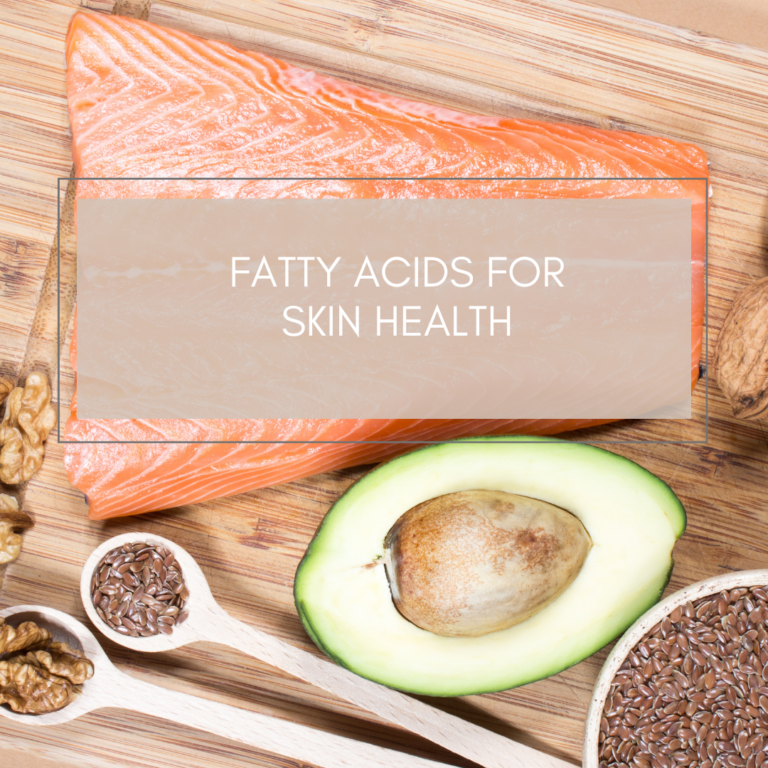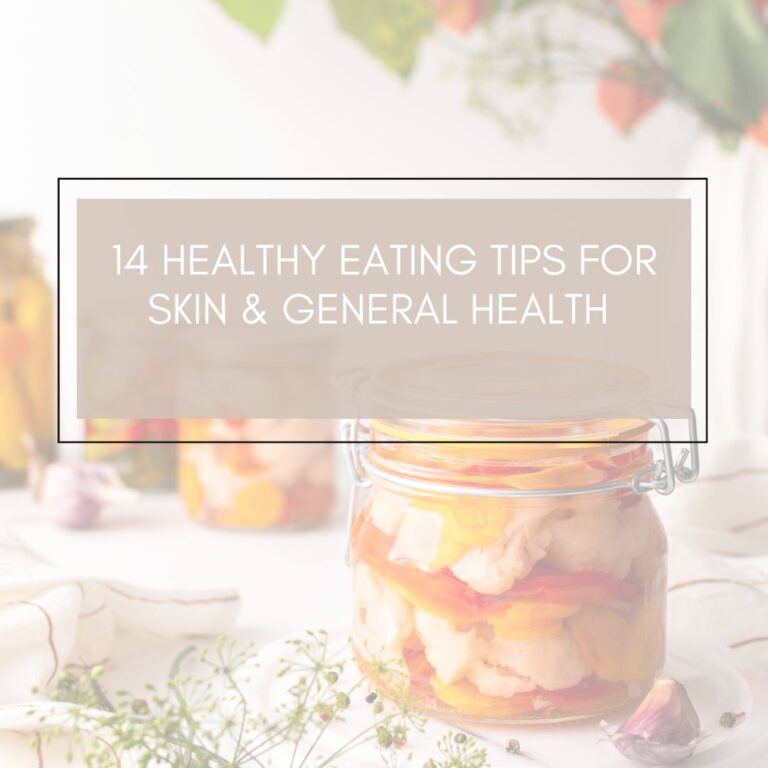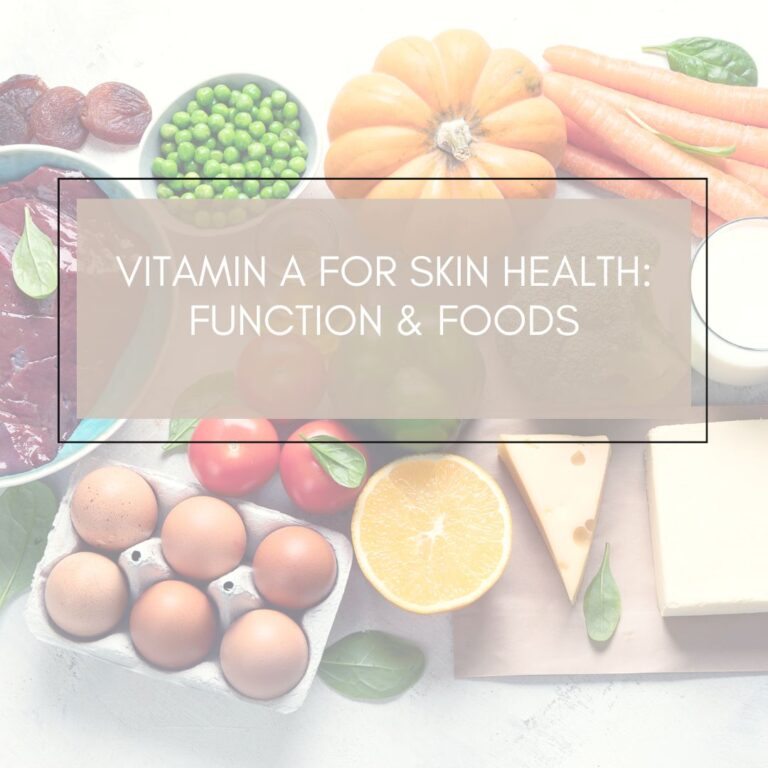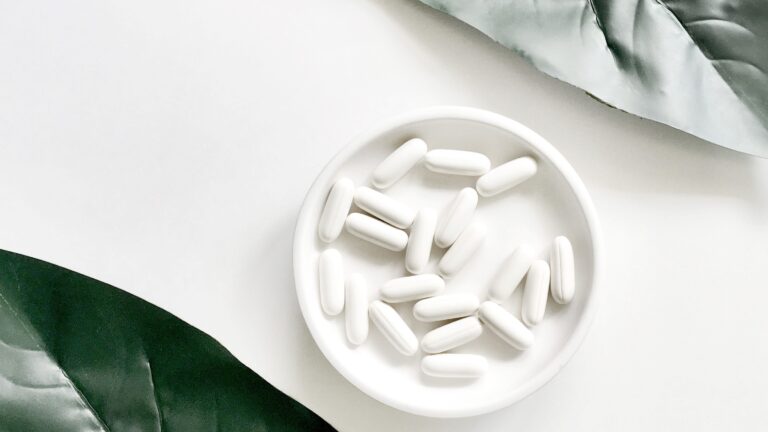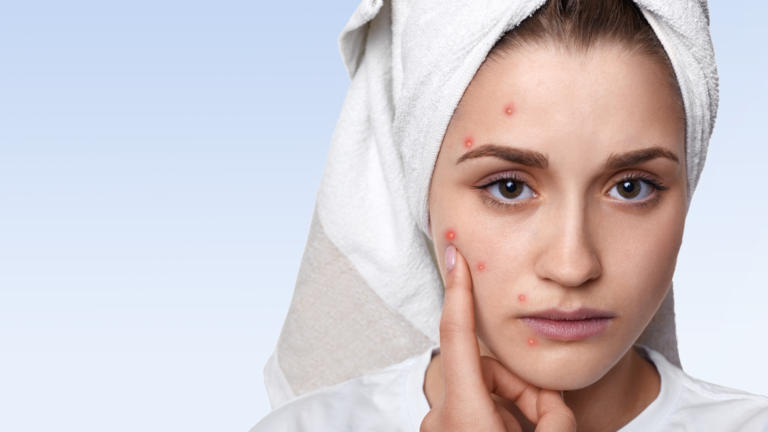Have you heard of the gut-skin-connection/gut-skin-axis? Gut health has become known to influence the rest of the body, such as the brain and mental health, the immune system and even the skin!
This is a very hot topic in the scientific field at the moment. Scientists have found that there is a direct link between the gut and skin. This connection is to a great part due to the bacteria (flora) in the body.
In this article we will go through the gut-skin connection, what the gut microbiome is and what you can do to support your gut health.
If you suffer from a skin condition, such as acne or psoriasis, you need to continue reading because this may actually really help you.
What is the gut microbiome?
Did you you know that there trillions of microorganisms in the body, as many as there are cells.
These microorganisms are referred to as the microbiome and consists of bacteria, viruses, parasites and fungi.
You may be surprised to hear that the microbiome is found, not only in the gut but also in other parts of the body as well, such as the mouth, the genitals, the lungs and even on the skin.
There is no surprise then, that these organs have a connection and that one can affect another. Did you know that the skin actually is an organ and it communicates with the rest of the body just lika other organs do.
In this article we will mainly be talking about the bacteria of the gut and on the skin.
There is a balance between the health promoting bacteria and pathogenic bacteria. It is very important to have a good diversity between different kinds of species and different kinds of strains.
An imbalance in these bacteria, which is called dysbiosis, can cause symptoms and contribute to disease, inflammation and skin problems.
If the gut microbiome is interrupted, which means that there is more pathogenic bacteria than good bacteria, inflammation can occur.
You may have heard of species such as Lactobacillus and Bifidobacterium. These are examples of health promoting bacterial strains.
The function of the gut microbiome
In the last decade, research has found that the gut microbiome is involved in very many important processes and affect our health in many ways.
Here are some exemples:
- The microbiome is a key regulator of the immune system.
- Help to reduce inflammation in the gut, skin and the rest of the body.
- The bacteria also regulate the use of vitamin D. So you need a healthy gut microbiome in order to use vitamin D properly.
- Bacteria in the gut produce a substance called butyric acid which is really good for maintaining good gut health as it promotes a healthy gut membrane.
- Produce som nutrients, for example vitamin K and B12.
- It also produces neurotransmitters, such as serotonin, dopamin and gamma-butyric acid (GABA).
- Protect against pathogenic organisms by covering the surface of the gut and the skin, so that the pathogenic bacteria can get through and cause damage to the membranes.
- They help maintaining a healthy membranes, such as the skin and the gut lining by producing substances, such as butyric acid that are used as energy by the cells in theh gut linning.
- The bacteria also regulate the use of vitamin D. So you need a healthy gut microbiome in order to use vitamin D properly.
- They are also involved in the activation of genes through epigenetic mechanisms.
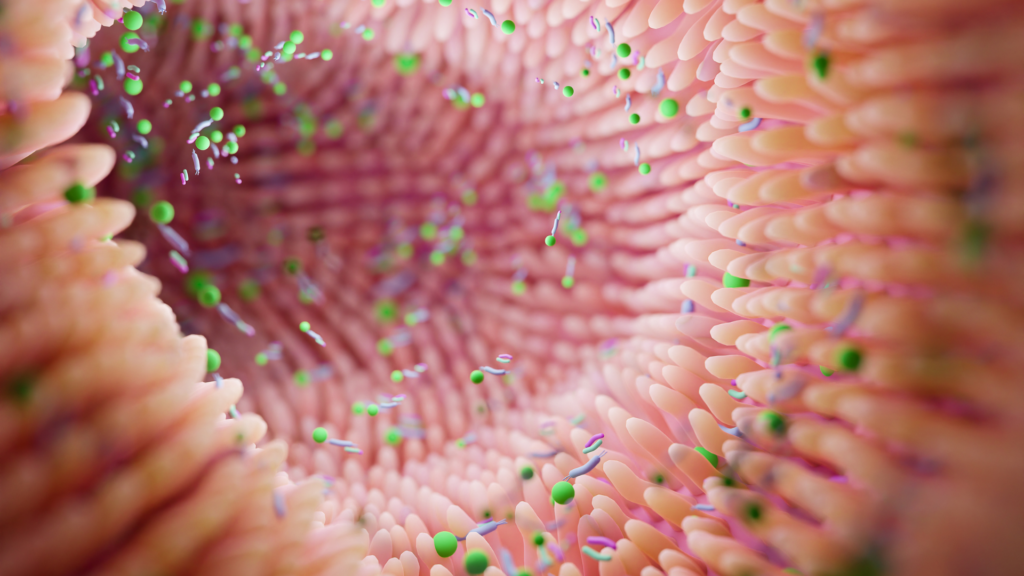
The connection between the gut and the skin
It really sounds like science fiction, doesn’t it!? How can there be a connection between the gut and the skin?
The gut-skin-connection or the gut-skin-axis, as it is also called, consists of connections between microorganisms, the immune system, inflammation, neurotransmitters and even hormones.
Many skin problems are accompanied by an imbalance in the gut microbiome. For example atopic dermatitis, psoriasis, acne, rosacea and even skin cancer.
Some examples of connections between the diet, gut health and skin problems:
- Diet has an impact on the microbiome and a classic western diet, with a lot of ultraprocessed foods, is associated with inflammation and the development of atopic dermatitis and psoriasis.
- There is connection between dysbiosis, inflammation in the gut, as well as IBS, and psoriasis.
- Nutritional compounds (for example gluten, alcohol), can affect the gut lining and cause skin problems.
The diversity of the different species depends on both genetic, but also environmental, factors such as diet, stress, sleep, particles in our external environment and exercise.
Luckily, you have the power to include foods and lifestyle factors that support your microbiome and gut health and increase the chances of improving your skin health!
Here’s what you can do to support your gut flora and gut health in general:
- Try to include more fermented foods in your diet, such as yoghurt, kefir, saurkraut, kimchi, kombucha and other fermented foods. For example, eat some form of fermented vegetables with your meals. Fermented foods contain the healthy bacteria. However, if you have a sensitivity against histamine, you may want to be careful eating fermented foods.
- Eat vegetables, fruits, nuts and seeds as they are good sources of fibre. Fibre is often referred to as pre-biotics as the bacteria in the gut feed off of fibre. Often when we talk about fiber we mean wholegrains, but a high intake of grains and wholegrains can cause gut problems in some people. Try to fill half your plate with vegetables.
- Reduce alcohol intake. No amount of alcohol is healthy, it is damaging for the body, including the microbiome, from the first glass you drink. Alcohol is a toxin.
- Reduce intake of foods that cause symptoms in the gut. If you feel symptoms from your gut when eating wheat, dairy, specific carbohydrate rich foods, histamine rich foods, citric acid rich foods (an additive that some people are sensitive to), or any other foods that you react to, cut them out from your diet for a few weeks and see if it gets better.
- Reduce stress. Stress has a directly damaging effect on the gut microbiome and gut health in general.
- Make sure you get enough good quality sleep. This is not only important for brain health, skin health and health in general, your little microbes also need sleep!
- Drink enough water to prevent constipation. If you suffer from constipation, read my best tips for relieving constipation in the text below.
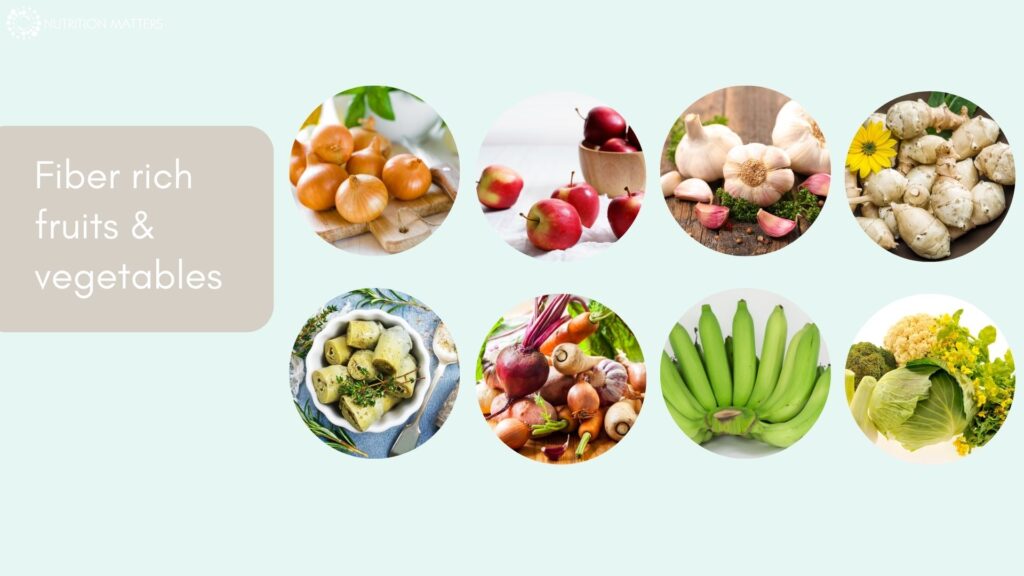
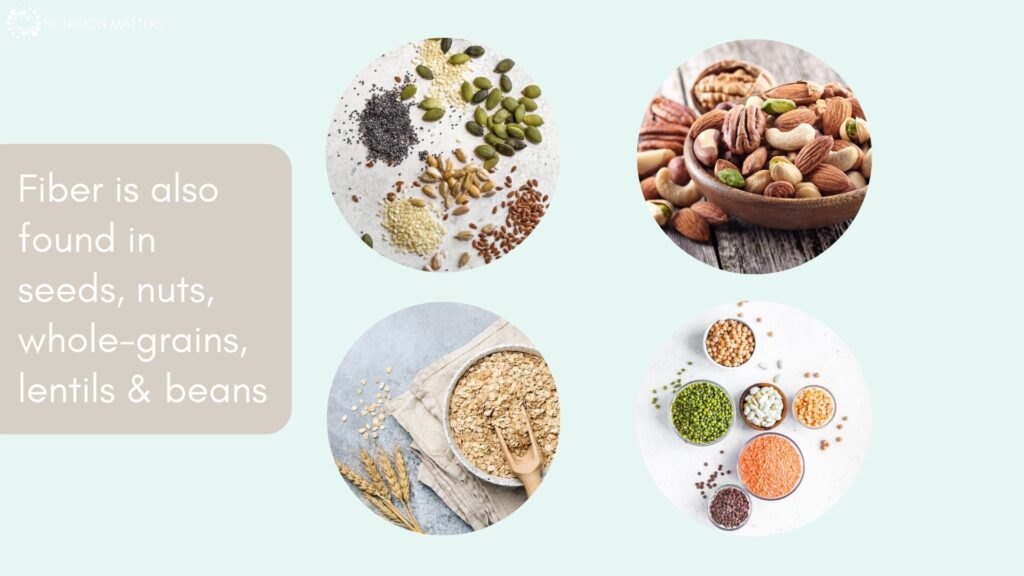
Probiotic supplementation and skin health
When supplementing the health promoting bacteria it is referred to as probiotics. Pro means for and bio means life. Probiotic supplementation is supplementing bacteria, for example strains of Lactobacilli and Bifidobacterium, is regarded as one of the most safe supplements with few, or no, side effects. However, please read the disclaimer at the bottom of this page before taking a probiotics supplement.
Here are a few recent studies on the connection between probiotic supplementation and skin health:
- People suffering from some inflammatory skin disorders, such as rosacea and atopic dermatitis, have been found to have a disturbed gut microbiome. For some people, probiotic supplementation, which restored the gut microbiome, has resulted in complete remission.
- Probiotic supplementation lead to an improvement in skin smoothness, skin moizurization and inflammatory markers in people with atopic dermatitis.
- Probiotic supplementation significantly reduced inflammation by reducing MMP-enzymes, which are associated with damage to both skin and gut barriers.
- Studies on cells and mice show that Lactobacillus plantarum can protect skin from damage caused by UV-radiation, oxidative stress and the breakdown of collagen.
If you suffer from a skin condition, or gut problems, you may want to try to include pre- and probiotics in your diet.
When choosing a probiotic supplement it’s a good idea to look for one with a diversity of different kinds of bacterial strains. Many kinds of probiotic supplements need to be stored in a cool dark place, so you need to be sure to keep them in fridge.
Constipated? Try this:
- Include more vegetables in your diet. As mentioned earlier, vegetables are a good source of fibre that support the gut microbiome as well as regular bowel movements.
- Drink a lot of water (accordning to Andrew Huberman, around 2,4 L per day, spread out over the first 10 hours of the the day, is a good mark). Staying hydrated not only makes the skin hydrates and support collagen formation, ut also help prevent constipation.
- Buy a squatty potty or use a footstool in front of the toilet to sit in a squatting position!! Sitting at 90 degrees with your knees on the toilet is an extremely unnatural position for us humans for emptying the bowel.
- Eat seeds such as psyllium seeds or linseeds. Try to mix a table spoon with a glass of water, let sit for 15 minutes, stir regularly and then drink. See what happens in the next 24 hours!
- Dried plums, figs and other dried fruits can help.
- Pears and kiwi fruits are good for increasing bowel movements.
- Supporting gut flora with fermented vegetables, as mentioned earlier.
- Exercise! Moving the body, especially running, squatting or doing yoga get get a hard bowel moving.
- Although I don’t generally recommend this to anyone, it may be useful for you to know that a few cups of coffee can have a laxative effect. Also high doses of magnesium oxide acts as a laxative.

Nutrition Matters Skin –
Your complete guide to beautiful skin from within!
References
- Gut–Skin Axis: Current Knowledge of the Interrelationship between Microbial Dysbiosis and Skin Conditions – PMC (nih.gov)
- Gut Microbiome in Psoriasis: An Updated Review – PubMed (nih.gov)
- Psoriasis Is Associated With Elevated Gut IL-1α and Intestinal Microbiome Alterations – PubMed (nih.gov)
- Alterations of the Skin and Gut Microbiome in Psoriasis and Psoriatic Arthritis – PubMed (nih.gov)
- Dysbiosis of gut microbiota was closely associated with psoriasis – PubMed (nih.gov)
- Changing our microbiome: probiotics in dermatology – PubMed (nih.gov)
- Efficacy of a probiotic supplement in patients with atopic dermatitis: a randomized, double-blind, placebo-controlled clinical trial – PubMed (nih.gov)
- Regulatory effects of Lactobacillus plantarum HY7714 on skin health by improving intestinal condition – PubMed (nih.gov)
- Oral administration of Lactobacillus plantarum HY7714 protects hairless mouse against ultraviolet B-induced photoaging – PubMed (nih.gov)
- Exopolysaccharide from Lactobacillus plantarum HY7714 Protects against Skin Aging through Skin-Gut Axis Communication – PubMed (nih.gov)
Disclaimer
Probiotic supplementation is generally regarded as safe for most people. However, if you are suffering from some kind of immune suppression, or any other kind of condition that affects your immune system, you should speak to your medical provider before using probiotic supplementation. The studies investigating the safety of using probiotic supplementation are short term studies, and the long term effect has not been thoroughly investigated.
When choosing a probiotic supplement it’s a good idea to look for one with a diversity of different kinds of bacterial strains. Many kinds of probiotic supplements need to be stored in a cool dark place, so you need to be sure to keep them in fridge.

